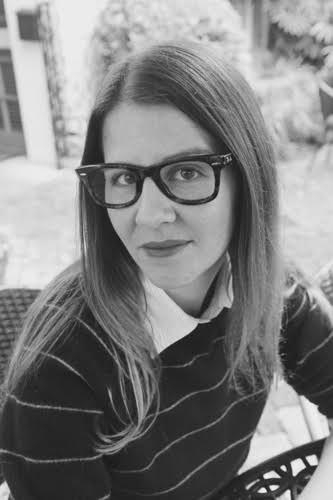Writing Queer: Away from the Body and into the Interior
 I know how I used to write, or at least I think I know. We have patterns to our work, stories shaped by our interior lives. This is not to say we’re writing our personal experiences into fiction (though sometimes we are), but our personal experiences inevitably guide how we create characters. We plumb those depths over and over again, looking for the heart of things, the messy place where the real shit lives. I find myself moving toward writing that displays an action – generally something embedded in the body. Enamored with the physical, I am constantly looking for a way to center ripeness of feeling in these movements. I like to see movement. I want to know how things hurt. Their sharpness. The ache of a bruise.
I know how I used to write, or at least I think I know. We have patterns to our work, stories shaped by our interior lives. This is not to say we’re writing our personal experiences into fiction (though sometimes we are), but our personal experiences inevitably guide how we create characters. We plumb those depths over and over again, looking for the heart of things, the messy place where the real shit lives. I find myself moving toward writing that displays an action – generally something embedded in the body. Enamored with the physical, I am constantly looking for a way to center ripeness of feeling in these movements. I like to see movement. I want to know how things hurt. Their sharpness. The ache of a bruise.
I have never been comfortable with feeling.
For the past year, I’ve examined this compartmentalization. At first, I looked to my work. Many of my stories have a propensity to showcase trauma against the body, and through the narrative I work to discover how my protagonists react to those violences. When people would ask what my work was about, I had difficulty defining this for them. I came up with blanket phrases that covered what I thought I was trying to do. I came up with “lesbian domestic,” or “body work.” It was difficult; I stumbled over my thoughts.
“You should be able to tell people what your work is about,” a friend told me. “If anyone should know, it’s you.”
So I grit my teeth and looked harder. I examined my stories and found feelings buried in every physical gesture. Every time a character moved, breathed, hit, fucked, hurt, they were feeling something deep within the motion. This startled me, but it shouldn’t have. I do the same thing in my own life. I bury feelings I find too intense behind a wealth of physical actions. If I am incapable of embracing tenderness in my own life, of cracking open the vulnerable parts and sharing them with others, how can I expect to do it in my work?
This became abundantly clear when I considered my queerness. In my writing career, I have made it a point to write about queer actions. Characters who are queer, lives that are queer. At least, I thought this was what I was doing. Looking back at these stories I’ve developed, I find people so enmeshed in their own inability to feel that they would rather destroy themselves than accept intimacy. I wrote stories that were so distanced from feeling that it was like looking at characters through a telescope. Far enough away you could see the movements, but feel very little. These characters spoke in italics. They became caricatures. I created human beings who had so little interaction with their interior worlds that they performed actions without thinking, engaged in lives that held little meaning for them outside of momentary gratification.
This work did not fulfill me. I wrote more than ever; my body of work was prolific, but I couldn’t connect with the writing. I decided to look again at what I was doing, but before I’d write anything, I’d answer these three questions with regard to intimacy:
How am I writing feelings? What feelings am I writing? Whose feelings am I writing toward?
Many of these first attempts at emotional writing frustrated me. I had difficulty writing about feelings without slipping into patterns of physical processes. Thinking more about my personal life, I considered the fact that my queerness and my feelings about romance and love were always hidden and tucked away as I was growing up. They were considered wrong; a perversion of intimacy. I wondered if my struggle with putting tenderness into my work was because to show such intimacy, out in the open, means that I am violating the terms of it. Vulnerability. Softness. To open a wound that’s not yet ready for air.
I forced myself to sit in these stories. To wallow in the kind of emotions that I don’t often allow myself. It was desperate work, and necessary. I dug through narratives and found my characters could connect, if they tried. If they wanted it enough. If I wanted it enough for them.
Opening up made my writing better. Opening up can only make me better, too.
